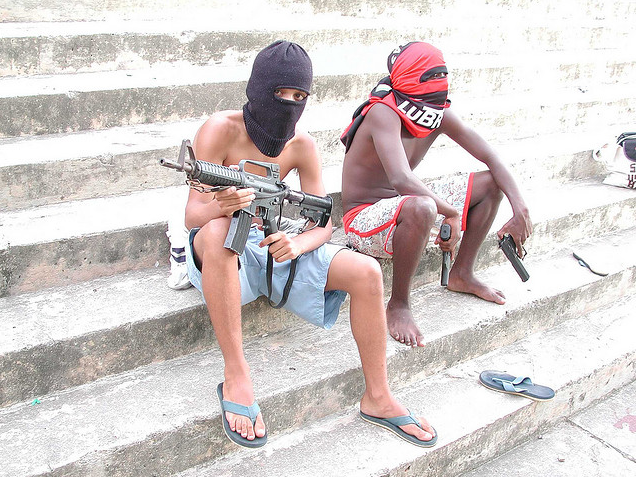RIO DE JANEIRO, BRAZIL – The number of people displaced by clashes between armed groups in rural areas of the Colombian municipality of Ituango, in the department of Antioquia (northwest), rose to more than 3,700, authorities said Monday (26).
“In total, we have in the municipal capital of Ituango 3,721 displaced people from 1,548 families,” said the governor in charge of Antioquia, Luis Fernando Suarez, in a statement to the press.
Read also: Check out our coverage on Colombia
The official pointed out that there is already “criminal news” about what is happening and said that everything indicates that those responsible for the forced displacement of the peasants are the dissidents of the FARC’s 18th Front and the Clan del Golfo, the main drug trafficking gang in the country, who are fighting for territorial control.
Suarez also announced that the police and army presence in this region would be reinforced in the face of escalating violence.

The displaced people, who have been fleeing since the beginning of last week due to the armed clashes, have had difficulty escaping because of the heavy rains falling in the area, which has caused landslides on roads and prompted the authorities of Ituango to declare a public calamity.
According to the authorities, these people live in 32 veredas (villages) of this troubled municipality.
Likewise, 41 people living in the neighboring municipality of Peque, also in Antioquia, arrived at the head of Ituango fleeing from the clashes between dissidents and members of the Clan del Golfo, also known as Autodefensas Gaitanistas de Colombia (AGC).
EMERGENCY RESPONSE
The Victims Unit flew 40 tons of humanitarian aid in helicopters to address the situation, including mattresses, blankets, rollers, personal hygiene kits, and food kits.
“We are in coordination with the Ministry of Defense, the Air Force and the National Army to be able to deliver humanitarian aid by air, which is the only way to enter the municipality at this time because of the winter rains that affected the land roads,” said the director of the Unit for Victims in Antioquia, Wilson Córdoba.
Along these lines, the regional prosecutor of Antioquia, Luis Fernando Bustamante, called on the national government to rehabilitate the roads blocked by landslides as soon as possible.
“With more than 25,000 inhabitants, if each one consumes one pound of food a day, 12,500 kilos of food are needed daily to feed the inhabitants, the magnitude of food that is needed is considerable, that is why the importance of rehabilitating the road urgently”, explained the official.
A SITUATION THAT REPEATS ITSELF
Ituango experienced a similar situation just half a year ago when these two armed groups clashed in February, causing hundreds of people to leave the villages.
Even then, social organizations denounced that this type of attack occurs periodically. Once a year, peasants have to leave their homes, farmland, and livestock to flee because of the violence, and now that period is shortening.
In Ituango, several armed groups are fighting for territory and competing for control of mining and prospecting rights, including two FARC dissidents and the Clan del Golfo, which emerged in 2006 from the demobilization of the paramilitary United Self-Defense Forces of Colombia (AUC).

